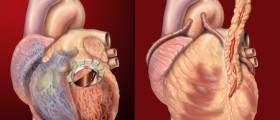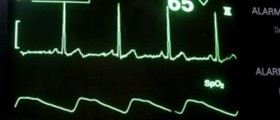
Some people say that they are \'dizzy\' when they face vertigo, or balance problems, or feeling faint, or feeling light-headed, or feeling unsteady, or feeling week, or sometimes just when they feel confused or emotional.
There are various causes of dizziness. Some are common, some are rare. Dizziness may be attributed broadly to a number of things. Some are minor problems, some are serious and even life threatening.
Dizziness is one of the most common reasons adults visit their doctors - right up there with back pain and headaches. Treatment of dizziness depends on the cause and symptoms, but is usually effective.
Vertigo is a type of dizziness, where there is a feeling of motion while one stands still. The symptoms are due to a dysfunction of the vestibular system in the inner ear. It is often associated with nausea and vomiting as well as difficulties standing or walking.
Dizziness causes High blood pressure, usually extremely high, causing damage to the brain,Low blood pressure, which can have multiple causes ranging from diseases of the heart to bleeding disorders that cause anemia to adverse reactions to medications,Heart causes as heart attack and arrhythmia, and weakened, aged, or diseased heart muscle, toxins or drugs affecting the rate or force of the heart.Brain causes
Stroke, tumor, headaches, migraines and hyperventilation,Fainting. People who feel faint often say that they feel \'light- headed\' and as if they may collapse unless they sit or lie down. Most of us can remember times when we have felt like this, for example, when we have been ill with a fever, or when very hungry, or very emotional. However, some people have repeated episodes of feeling faint without an obvious explanation such as a fever.Dementia or senility - any illness causing confusion or altered state of mind, medications, drugs, or alcohol. Anemia. The main symptom of anemia is tiredness. However, if you have anemia you may not get sufficient oxygen to the brain. This can make you feel light-headed.
Anxiety. In particular, if you have anxiety with panic attacks you can feel light-headed. This can get worse if you over-breathe (hyperventilate) due to the anxiety or panic attack.
Somatization. The conversion of a mental illness, such as anxiety or depression, into physical symptoms.
Do I need to see a doctor?It is usually best to have an explanation for dizziness. If you have a prolonged episode of dizziness or recurring episodes of dizziness, and if you are not sure what is causing them, then it is best to see a doctor. In particular, if you have other symptoms in addition to the dizziness, such as: headache, problems with speech, difficulty walking, collapse or any other symptom that you cannot explain, again, it is best to see a doctor.

















Your thoughts on this
Loading...